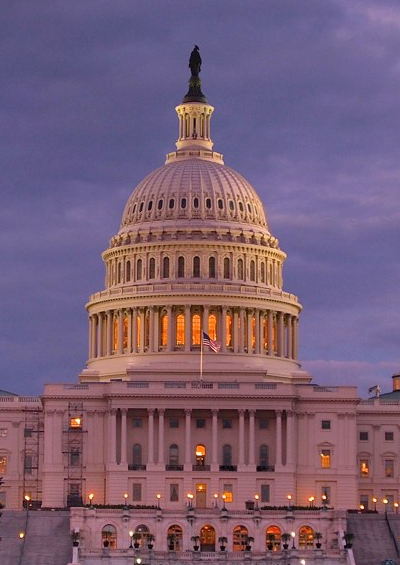Can Democrats Overcome Trump’s Shadow?
Should the Democratic Party be fortunate enough to rise to power again, the question arises: What will they do with it?
October 11, 2018

While the Republicans are remarkably united, even under the most ardent of circumstances (such as at present), he Democratic Party, even before the Age of Trump, tended to easily split on votes.
It is made up of a small progressive wing, a large establishment wing (increasingly acting like classic Republicans of old) and the accidental Democrats representing conservative states.
The latter tend to be Democrats whose primary concerns are comity, getting along, bipartisanship and arcane process questions.
Rather than pursuing a distinct political agenda at the national level, they regale themselves in holding the office and “maintaining the decorum” of the U.S. Senate.
Needless to say that these different wings often disagree with one another. In practical terms, that means that Democratic Party Senators have a penchant for being bought off rather easily.
The most prominent wing of the party – still the Clinton wing — is wedded to the corporate interests of Big Finance, Big Insurance and Silicon Valley.
Despite the loss in the 2016 presidential race, the Clintonites try to preserve their hold on the party apparatus across the land as much as they can. And they continue to talk a smooth game – glibly referring to the interests of “the people,” but always ready to turn on a dime to serve their corporate paymasters.
Winning elections alone won’t fix the damage
Should the Democratic Party be fortunate enough to return to legislative power again – not an easy task in the face of intense gerrymandering and voter suppression, and despite a total lack of any coherent platform or vision to justify being blessed with such a majority – the question arises: What will they do with it?
As things stand, one can count on the “kumbaya” (go along to get along) Democrats to spend yet more time wringing their hands about the proper way to do things.
They may well say the right things to advance a repair agenda as fast as possible, but then find themselves curiously hesitant to undo the damage done, for fear of unnecessarily rocking the boat.
The corporate Democrats, for their part, can be counted upon to vote against most of the necessary legislation — or water it down into near meaninglessness.
They will never match the resolve of quick-fire Republicans, who have spent their first year in total control of all branches voting to undo as many modern regulations as possible.
But what about the option of the Democrats fundamentally challenging the many procedural and ideological obstacles that hold back any modernity in Washington?
One shouldn’t count on the Democrats pursuing such change. Ironically, the readiness to pursue such fundamental change – including the pursuit of so-called “nuclear” options in the U.S. political system — are the grist and fuel of American conservatives.
The task ahead
Stronger Democratic majorities are, if so, quite a few years away, but they are at least possible, owing to fundamental demographic changes inside the United States.
However, even if and when they materialize, it stands to reason that they will be characterized – unless something changes significantly – more by a molasses-like (rather than fast-paced) action on undoing the damage.
That is yet another reason why Trump’s shadow, after leaving the office, will be so long.
Takeaways
Should the Democratic Party be fortunate enough to rise to power again, the question arises: What will they do with it?
While the Republicans are remarkably united, the Democratic party, even in the age of Trump, tends to easily split on votes.
Stronger Democratic majorities are quite a few years away. But they are possible owing to fundamental demographic changes inside the US.

